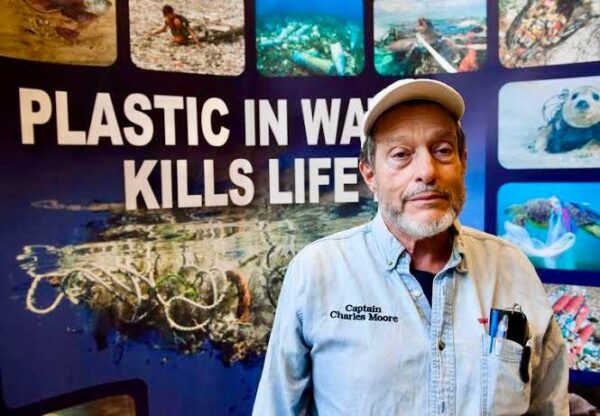Pollution in the oceans has evolved. The problem nowadays affects the ocean and our daily lives with the consumption of microplastics.
Plastic microparticles are present in the drinking water we consume, in food, on beaches, and in cenotes.
Charles Moore, an oceanographer, and a ship captain, warned about the problem during his participation in the Second Forum for the Ocean from the Mexican Caribbean.
Moore, known for having discovered the Great Pacific Garbage Patch, stressed that it is not enough to clean beaches for a single day.
Instead, he proposed creating clean sanctuaries that would be maintained for the long term. “Indigenous communities are an example to follow,” said Moore, highlighting how these populations manage water without the use of plastic.
These practices could be essential for the future if we want to reduce dependence on plastic in our lives.
As founder of Algalita Marine Research, Moore and his team have studied the effects of plastic on marine life.
After analyzing blood and liver samples from fish in the northern Pacific Ocean, they discovered that 35% of those that feed at night on the surface inadvertently ingest plastic debris, suggesting a negative impact on the food chain.
“Plastic is like an invasive species globally,” Moore said. As the particles become smaller, the risk to human health increases.
Plastic micro and nanoparticles are reaching animals, plants, our organs, and the atmosphere.
The expert stressed that this invasion is a challenge since even the solutions to address this problem, ironically, often involve plastic.
Moore expressed special concern about the Quintana Roo cenotes. He noted that these cenotes are still clean, and therefore, they must be protected through public policies, while many that have become garbage dumps require urgent measures to stop pollution.
San Miguel Times
Newsroom

